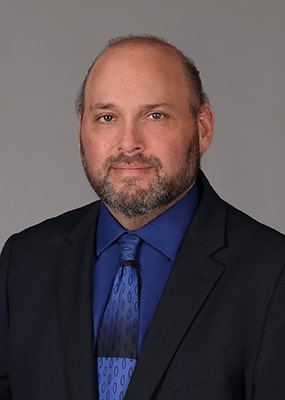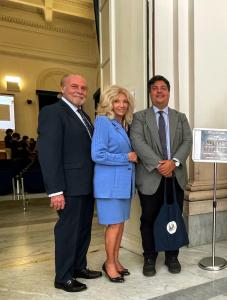Whether you’re an existing board member or a new board member this year, as Community Association Law attorneys, we’d like to remind you of some top tips for community association board members. 1. Know Your Governing Documents Whether you're a Condominium Association under Chapter 718 or a Homeowners Association under Chapter 720, your Community Association has a set of governing documents, and the law imposes upon you a duty to know what those documents are as well as their function and purpose. Both HOAs and condo associations have declarations of covenants and restrictions that impose a set of obligations or stipulations on owners (i.e. use restrictions, ownership restrictions, occupancy restrictions, etc.). Under the law, there is a certain hierarchy in governing documents in which the Declaration is the most important. The other two types of governing documents, the Articles of Incorporation and Bylaws, determine how your corporation runs i.e. eligibility requirements for the board, elections, annual meetings, etc. Under law, a new board member of a community association – both in condos and HOAs – have an obligation within 90 days of commencing service on the board to certify in writing that they have read and understand all governing documents and agreed to, to the best of their ability, enforce those governing documents according to their provisions. As community association law attorneys, we also recommend that you take a board certification course, especially if you have never served as a board member before. Along with a Certificate of Completion, you’ll receive valuable information and tips for being a successful board member. Our Community Association Attorneys at Sachs Sax Caplan frequently teach board member certification courses as well as continuing education courses for Florida Community Association Managers. To learn more and find out when our next class is, call 561-994-4499. 2. Treat Your Community Like a Business As a board member, you have a fiduciary obligation to other members and owners in your community to serve objectively, responsibly, honestly and efficiently. I believe the best way to do that is to treat your community like a business and run your board as...



Homeowners’ and condominium associations play a crucial role in maintaining the harmony and value of residential communities. A common question that arises is whether these associations can adopt amendments that change the leasing rights of owners within the community. Let’s delve into the specifics according to Florida law. Homeowners’ Associations and Leasing Amendments Chapter 720 of the Florida Statutes is called the Florida Homeowners’ Association Act. This law was amended in 2021 to address amendments that regulate the leasing of “parcels” within a homeowners’ association. Typically, the parcel is the home and the land the home sits on, and usually other improved or unimproved portions of lots. A new Section 720.306(1)(h) was added, which says that any amendment to the homeowners’ association’s governing documents, adopted after July 1, 2021, that prohibits or regulates rental agreements, only applies to a parcel owner that acquires title to their parcel after the effective date of the amendment, or to a parcel owner who consents to the amendment. However, this restriction does not apply to amendments which regulate or prohibit rental agreements for terms of 6 months or less. Further, amendments that prohibit the rental of parcels for more than 3 times in a calendar year also apply to all parcel owners. Homeowners’ associations continue to have the ability to adopt amendments that regulate or prohibit leases of 6 months or less, and still have the ability to adopt amendments which prohibit leasing more than 3 times in a calendar year. Condominium Associations and Leasing Amendments For condominiums, Section 718.110(13) of the Florida Condominium Act states that any amendment which prohibits a unit owner from leasing their unit, alters the duration of the rental term, or limits the number of times an owner may rent their unit during a specified period, only applies to those owners who take title after the effective date of the amendment, or those owners who consent to the amendment. There is no 6-month/3 times per year exception in the Condominium Act. Florida Senate Bill 280 During the 2024 Florida legislative session, CS/SB 280 was passed by the Florida Legislature. This...

From time to time, an association will be confronted with the need to go into or onto an owner’s property for the purpose of undertaking required maintenance as may be authorized by the governing documents. In some instances, the association, in order to prevent further damage to other property, may need to go into a unit to remediate mold or other water damage when the owner is unavailable or refuses to provide access to the association. In either situation, however, it is not uncommon to encounter owners who are not just uncooperative but some who threaten violence. What is an association to do? First, the association must understand what rights it may have. For homeowner association communities, the Homeowner Association Act, Unlike the Condominium Act, does not have any specific statutory language governing access. In such a situation, the Board of Directors and management must look to its governing documents which almost always (especially for townhome communities) have a provision that allow for reasonable access for the association to the property to fulfill maintenance obligations. As for condominiums, Fla. Stat. 718.111(5) provides the statutory right for access to units during reasonable hours, when necessary, for the maintenance, repair, or replacement of any common elements. The statute further provides guidance on the process an association must take to access an abandoned unit. Second, except when bona fide emergency access is needed, condominiums should give the owner written notice of its need to enter the unit. If the unit is abandoned, at least two (2) days’ notice is required. For units that are not abandoned, the statute is silent on the amount of notice to be given. Absent a provision in the Declaration of Condominium, you may, for guidance, review Fla. Stat. Section 83.53(2) of Florida’s Landlord-Tenant Act which defines reasonable notice as 12 hours prior to entering between 7:30am – 8:00pm. Homeowner associations should follow similar protocols unless the governing documents provide specific notification timeframes. Understanding that an association may have access rights does not guarantee that the owner will be cooperative. In such situations, a homeowners association may serve a pre-suit...


As many of you may be aware, Congress passed the Corporate Transparency Act in January 2021. The intent of this law is to assist in combatting financial crime and fraud. In connection therewith, the law requires “reporting companies” to report specific information about the owners and managers of their companies to the Financial Crimes Enforcement Network (FinCEN). There has been some debate as to whether or not Condominium and Homeowner Associations are governed by this Corporate Transparency Act. The prevailing view in the industry is that unless and until the law is clarified or changed, Condominiums and HOAs are considered “reporting companies” that must submit the required information to FinCEN. This information includes the legal name, address, state of formation and taxpayer identification number(s) for the company; and the legal names, dates of birth, residential addresses and government-issued identification numbers for all of the “beneficial owners” of the entity. The Act defines “beneficial owners” as those individuals who (i) directly or indirectly, exercise substantial control over the company; or (ii) own or control at least 25% of the company’s ownership interests. The Directors and Officers of your Community Association are presumably included under the control aspects of the definition. The reporting date under the Corporate Transparency Act began on January 1, 2024, and any Community Association that was formed prior to that date will have up until January 1, 2025, to file their initial report. Any Community Association that is formed after January 1, 2024, will be required to file their initial report within thirty (30) days of their formation date. Any time there is a change to the “beneficial owners” (e.g., a director resigns, a new director is elected, a director changes her/his address), the association has 30 days to report the change to FinCEN. The penalty for failing to timely submit required reporting information to FinCEN is $500.00 per day, up to $10,000. As such, in 2024, it will be very important for Community Associations (Condominiums and Homeowners Associations) to consult with legal counsel as to their requirements and obligations under the Corporate Transparency Act, in order to meet...


Senate Bill 360 (SB 360) was signed into law by Gov. Ron DeSantis on April 13, 2023, immediately becoming effective upon such signing. The bill is sure to significantly impact construction defect claims in Florida. This is because it drastically reduces the time limit for property owners to file suit against builders and construction professionals for construction defects and imposes a more stringent standard for bringing a claim under the Florida Building Code. Furthermore, the bill shortens the statute of repose for construction defect claims from 10 years to 7 years. Essentially, a statute of repose is the absolute deadline by which a lawsuit can be filed, even if a cause of action hasn’t yet occurred or you don’t know you may have a claim. The bill not only shortens the length of time from 10 to 7 years, but it also changes the events that may trigger the clock to start and changes it from the last event to occur to the first to occur. Previously, the clock started running on the latest of any of the following events: actual possession by the owner; date of issuance of a certificate of occupancy; date of abandonment of incomplete construction; or the date of completion of termination of the contract between the engineer, architect, or contractor and her/his employer. However, now, the clock begins running on the earliest of any of the following events: the date of issuance of a temporary certificate of occupancy, a certificate of occupancy, or a certificate of completion; or the date of abandonment of incomplete construction. This means the length of time before building owners can be barred from bringing defect claims is shortened significantly. The bill also narrows the scope of statutory civil actions against builders for alleged violations of the Florida Building Code from any violation to a “material” violation. The bill defines a “material” violation as a Florida Building Code violation that exists within a completed building, structure, or facility which may reasonably result, or has resulted, in physical harm to a person or significant damage to the performance of a building or its systems. HB 360 Quick...


House Bill 437 (HB 437), a new law that went into effect on July 1, 2023, should be noted by any person living in a community association and every board member of a community association in Florida. With respect to condos, HB 437 adds Patriot Day to the specified days during which unit owners may display 1 portable, removable flag of the United States or one of its military branches. As for HOAs, homeowners may now display up to 2 flags representing the United States, a US military branch, Florida, a POW-MIA flag, and/or a “first responder flag”; previously, only 1 flag was statutorily permitted. The statute defines a “first responder flag” as recognizing and honoring and of the following: law enforcement officers, firefighters, paramedics, EMTs, correctional officers, 911 public safety telecommunicators, advanced practice registered nurses, licensed practical nurses, registered nurses, statewide urban & rescue program participants, federal law enforcement officers. Finally, HB 437 creates a new section of Chapter 720 providing that a homeowners association may not prohibit owners or their tenants from installing, displaying or storing items that are not visible from the parcel’s frontage or an adjacent parcel. HB 437 Key Factors: HB 437 amends Chapter 718 to provide for Condominium Associations that certain flags may now be flown on Patriot Day (September 11th) in addition to the existing list of holidays for which a Condominium unit owner may fly 1 portable, removable flag.HB 437 further amends Chapter 720 for Homeowners Associations to allow the flying of up to two (2) flags and expands the list of allowable flags to include “First Responder flags”. Why is HB 437 important? For Homeowners Associations, this legislation also creates a new Section of Chapter 720 to allow the installation, display and storage of items in a Homeowner’s rear yard, so long as such items are not visible from the frontage of the parcel or from an adjacent parcel. This would include the ability of a homeowner to store, place or install any items, such as boats, RV’s, and artificial turf, or any other items, so long as they are not visible...


Understanding SB 154 - Condominium and Coop Safety (Surfside Glitch Bill) Effective June 9, 2023, except as otherwise indicated herein This bill was passed in response to the surfside legislation passed last year, namely SB4D. This legislation clarifies many of the open issues and concerns that Associations were faced with after last year’s legislative session. Applies to Condominiums and Cooperatives. Milestone Inspections The legislature clarified that the requirements for the milestone inspections and structural integrity reserve studies apply only to residential Condominiums and Cooperatives, and not commercial Condominiums or Commercial Cooperatives. Note, the residential portion of a mixed use Condominium or mixed use Cooperative is subject to the milestone inspection and structural integrity reserve study requirements. The previous legislation differentiated between Condominiums and Cooperatives that were within three (3) miles of the coastline versus those that were not located within three (3) miles of a coastline. The coastline analysis has now been removed, and all condominium or cooperative buildings that are three (3) or more stories must conduct their milestone inspections within thirty (30) years of the building’s certificate of occupancy (the “30 Year Mark”), unless an earlier inspection (i.e., within twenty-five (25) years of certificate of occupancy) is justified by a local enforcement agency taking into account certain environmental factors, such as proximity to salt water. The legislature expanded who could perform the milestone inspection so that it could be performed by a “team of professionals,” with an engineer or licensed architect acting as the person responsible. The bill authorizes local enforcement agencies to extend the deadline for a building if it can be shown with good cause that the building has entered into a contract with an engineer or architect before the deadline but that the report cannot be reasonably completed prior to then. The bill specifies that the association must notify the membership of the deadline to complete a milestone inspection within 14 days of notice from the local enforcement agency that a milestone inspection is required. The bill further permits the local enforcement agency to accept a report issued by an engineer or architect that inspected the...


Understanding HB-919 - Homeowners Bill of Rights This law applies only to HOA’s and does not apply to Condominiums or Cooperatives. This Act takes effect October 1, 2023. For all HOA notices of Board meetings, the notices now must specifically identify all agenda items for the meetings. The bill requires that where an Association collects a deposit from a member for any reason, including construction or a lease security deposit, or any other deposit, the Association must keep that deposit in a separate account from other Association funds. Upon completion of the construction project or other reason for which the deposit was collected, the member may request an accounting from the Association, and the accounting must be provided within 7 days of the request. Also, the Association must return any unused funds to the member within thirty (30) days after the construction project or other reason for the deposit has been completed. The bill provides that an owner’s designated mailing address is the member's property address unless the member has sent written notice to the association requesting that a different mailing address be used for all required notices. Similarly, a member's e-mail address is the e-mail address provided when the member consents in writing to receiving electronic notices unless the member has sent written notice to the association requesting that a different e-mail address be used for required notices. The bill provides that officers, directors or managers who knowingly accept a kickback or other items without consideration may be subject to monetary damages. It further provides for removal from office if charged or indicted for certain crimes such as forgery of ballots and envelopes, theft or embezzlement of Association funds, destruction of Association records, and obstruction of justice. If any such criminal charge is pending against an officer or director, such officer or director may not be appointed or elected to any position as an officer or director in any association, nor may have access to any official records of any association, except pursuant to Court Order. The bill requires developer-appointed officers and directors to annually disclose to the association their...

An important function of a community association is to oversee essential services that vendors provide for the community such as landscaping, pest control, asphalt paving, and security. These services require written contracts which should include important terms that protect the association, particularly in the event that the vendor does not perform its side of the bargain or causes damage to a person or property. As further discussed, it is easier to prevent large costs and legal exposure to an association by sound contract language crafted or approved by an attorney at the start of a relationship with a vendor than to repair the damage that a poorly worded agreement that was simply signed on an association’s behalf without legal review has created. Legal counsel’s assistance with vendor, and other service, contracts can be important. Contract disputes can be very expensive and time-consuming. And, such disputes aren’t always incorporated into the association’s annual budget which could put a lot of financial strain on the association and lead to unpopular special assessments. Also, the association can be stuck with a vendor that is doing a poor job. Some examples of where an attorney’s advice is important include making sure the vendor is contractually obligated to provide sufficient insurance and that there are well worded indemnification provisions. There are some nuances in Florida law regarding indemnity and all too often it seems that contracts created by vendors are one-sided and don’t protect the association in the event for example that a third party is injured as a result of the vendor’s services. Also, contracts created by the vendor may be unclear or unfavorable to the association regarding the vendor’s responsibilities, the timeframe by which the work must be commenced and completed, payment terms, recourse for the vendor’s failure to perform, warranties, under what conditions the agreement can be terminated, and where litigation must be commenced if there is a dispute, to name just some possible provisions where an attorneys’ involvement in contract review can be very important. I recall an instance where a national vendor puts in its standard contract that any lawsuit...

Robert Kennedy once said, “It is the essence of responsibility to put the public good ahead of personal gain.” For Florida condominium and homeowners’ association officers and directors, this fiduciary responsibility to the members of your association is no different. You are not simply a figurehead! Rather, you are a leader, entrusted with the task of acting in the best interests of the association and its members. This means that you must exercise the utmost loyalty, good faith, and due care in carrying out your responsibilities. Loyalty means that you must put the interests of the association and its members before your own personal interests. This can be a difficult task, especially if you have close relationships with certain members, vendors or suppliers. However, you must always remember that your primary responsibility is to the association, and that any conflicts of interest must be disclosed and dealt with appropriately. Good faith means that you must act honestly and with integrity at all times. This includes making decisions based on what you believe is best for the association, rather than your own personal gain. You must also keep the interests of all members in mind, not just a select few. This can be challenging when you are faced with competing demands or limited resources. However, you must always strive to make decisions that are fair and reasonable, and that reflect the values and goals of the community at large. Due care means that you must exercise reasonable care and diligence in carrying out your responsibilities. This includes being informed about the issues facing the association, and seeking out expert advice when necessary. You must also be familiar with your association’s governing documents, rules and regulations, and applicable laws (Chapter 718, Chapter 720), in order to ensure that you are acting in accordance with their requirements. One of the most important aspects of your fiduciary duty as an officer and/or director of a community association is to maintain the financial health of the association. This means that you must ensure that the association is operating within its budget, and that all expenses are...

For many years, under HOA law (Chapter 720, Florida Statutes), there was a requirement that HOAs take nominations from the floor at their annual meeting. This put many people at disadvantage because if there was another nomination process prior to the annual meeting, people could put their name in advance and campaign for votes to the disadvantage of those who would later nominate themselves from the floor. With condominium associations, as distinct from HOAs, you were not permitted to nominate yourself from the floor as the statute (Chapter 718, Florida Statutes) prohibits floor nominations. However, with HOAs, there was always a requirement to allow such nominations. Several years ago, Chapter 720 was amended to state that if an HOA’s election process took nominations prior to the annual meeting, you would not be required to take nominations from the floor on the date of the meeting (Section 720.306(9)(a)). The statute does not really define what it means by “election process”. Therefore, our interpretation up until recently had been that the board could adopt procedures or rules identifying an election process to take nominations prior to the annual meeting. Recently, some recent arbitration decisions ruled that the HOA’s election process must actually be spelled out in the HOA’s governing documents, such as the bylaws. Therefore, if you are an HOA, and you wish to be able to have nominations taken prior to the annual meeting so that you are not required to take additional nominations from the floor, you must make sure that your bylaws or your governing documents spell that process out expressly, as opposed to only having board-adopted election procedures. Since we are entering into the time of the year where many HOA’s are going through their elections, it is our recommendation that you consult with your HOA attorney to make sure that your governing documents and your election materials have a pre-call for candidates. If it is not, we recommend that you amend your documents to confirm that your election process is run in accordance with Chapter 720 and with your HOA documents moving forward. Steven G. Rappaport is a...

Today, I’d like to discuss something called covenant enforcement. Covenant enforcement is when an association must enforce the rules, regulations and restrictive covenants that are contained in an association’s declaration, whether it's a declaration of condominium or a declaration of covenants and restrictions – and there are many ways of doing so. However, one of the biggest complaints that I've heard over the years is that associations have no teeth to enforce their documents, which is not true. Associations do have teeth – they do have the ability to enforce. The issue primarily is being willing to do what it takes to enforce the documents. Avenues to take include fining, suspending usage rights or potentially suspending voting rights. In extreme cases, you're talking about going to mandatory mediation, which is now required under the homeowner's association statute, Section 720.311 of the Florida Statutes. It's also one of your options under the condominium statute, Section 718.1255. So, you do have some options for covenant enforcement. What we always need to be mindful of when enforcing an association’s rules is that everybody must be treated the same under similar circumstances. You don't want to be in a position where you are trying to enforce your rules and regulations against a unit owner or an occupant, and they raise a defense of selective enforcement. Selective enforcement means that you have enforced the same covenant against one person but not another under similar circumstances. We always must compare apples to apples and oranges to oranges. Other defenses include waiver and estoppel (which are really two sides of the same coin). For example, if approval was obtained for an architectural change, and the owner expended money and time and contractors in getting the work done, the association can’t come back and change its mind later. The approval has already been relied upon. We never want these kinds of valid defenses to be able to be raised, so we need to be mindful of what we're doing and how we're doing it. We always need to make sure that we're even handed, that we're consistent, and that...

As written about extensively, last year Governor DeSantis signed legislation into law that requires condominiums and cooperatives, three (3) stories or higher: (i) to conduct milestone inspections, (ii) conduct a structural integrity reserve study, and (iii) based upon those studies, to implement and collect mandatory reserves from each unit owner. These requirements become effective December 31, 2024. The well-intended purpose of this legislation is to prevent another Surfside tragedy by forcing condominiums and cooperatives to collect reserves to address structural issues over time as opposed to waiving reserves and delaying the need for collection of funds to address repair problems in a timely manner. While Florida’s Condominium and Cooperative Acts always required the Board of Directors to calculate reserves, members were allowed by majority vote to waive or reduce reserves which resulted in many associations not having the funds to address expensive and necessary repairs when required. As new legislation, there are some glitches that have caused confusion for those condominiums and cooperatives that are less than three stories. Whereas the law is clear that effective December 31, 2024, condominiums, and cooperatives that are three (3) stories or higher must conduct inspections, obtain reserve studies, and implement and collect mandatory structural reserves, questions have arisen if the mandatory structural reserve requirements are applicable to condominiums and cooperatives that are less than three (3) stories, or if said reserves may be waived or reduced by its members. Attorneys are somewhat divided on this issue. Whereas some attorneys view the mandatory reserve requirement to only be applicable to condominiums and cooperatives that are three stories or higher; other attorneys believe that collection of mandatory reserves is required of all condominiums and cooperatives associations, irrespective of height. The latter position is shared by the Department of Business and Professional Regulation, Division of Florida Condominiums, Timeshares and Mobile Homes, which regulates condominiums and cooperatives. When asked about two (2) story condominiums, the Division took the position that the height of a condominium has no bearing on the requirement of collecting reserves or on its ability to waive reserves. Until such time as the legislature or...

BOCA RATON , FL, USA, September 19, 2022 https://www.einpresswire.com/article/591672087/south-florida-attorneys-peter-and-maria-sachs-travel-to-italy-to-speak-to-law-students-at-univ-of-naples-federico-ii-- Peter Sachs, Board Certified Attorney and Founding Partner of Sachs Sax Caplan, P.L., a Boca Raton based law firm, and Maria Sachs, Palm Beach County Commissioner, Former Florida State Senator, and Criminal Defense Attorney, were hosted by the American Studies Center of Naples earlier this month in Naples, Italy, where they jointly spoke with Law Students at the University of Naples Federico II in Naples, Italy. Established in 1224, the University of Naples Federico II is the oldest public nonsectarian university in the world, and among the largest three in Italy in terms of faculty.The Sachs’ presented on a range of topics including the role of law and lawyers in the United States; a historical perspective connecting Italian to United States law; Florida condo law (its origins being tied to ancient Roman law); criminal law and the influence of media; and the business of running a law firm. Both Peter and Maria Sachs also shared their personal journeys. Peter speaking on his background as a first-generation immigrant with origins in a refugee camp just after the Holocaust and his beginnings as an attorney, and Maria, with Neapolitan origins, beginning her career in the service of Janet Reno, who later became the first woman to hold the position of U.S. Attorney General.“It was an honor to have the opportunity to address an audience of young aspiring Italian lawyers and speak about my personal experience leading Sachs Sax Caplan, a firm I founded five decades ago, as well as being a pioneer in Condominium and Community Association Law in Florida,” said Peter Sachs. “Maria and I are committed to future collaborative efforts with the faculty and the students here at the University of Naples Federico II.”Maria Sachs added: “I have always thought that my Neapolitan origins have constituted an advantage in my forensic and political career. This meeting with the students at University of Naples Federico II confirmed it. In the eyes of the students, as well as in their questions and observations, I found that same intelligence and curiosity that is typical of Neapolitan...

As we pointed out in an earlier column, one of the direct side effects of the tragic Champlain South Tower collapse was the additional scrutiny and due diligence that mortgage companies were going to apply before issuing mortgages in condominiums. At that time, Federal National Mortgage Association (“Fannie Mae”) issued Lender Letter (LL-2021-14), titled Temporary Requirements for Condo and Co-op Projects, which imposed new “temporary” rules and restrictions pertaining to Fannie Mae’s purchase of loans from primary lenders on the secondary market. These new requirements went into effect on January 1, 2022. What has resulted since is the requirement that any mortgage servicer who wishes to write a mortgage that may eventually be sold on the secondary market must create robust questionnaires for associations to answer before a mortgage will be issued. The problem now is that condominium associations are receiving these questionnaires, and due to the breadth and scope of the questions, are unsure on how to answer. For example, the following examples may be found on questionnaires: Are there any conditions, project wide, regarding deferred maintenance (within the past 5 years) which may negatively impact the safety, structural soundness, habitability, or functional use of any individual unit or the project as a whole?If a unit is taken over in foreclosure, what is the maximum number of months of assessments for which the lender is responsible?What amount is currently in reserves?Is it anticipated that the project will have code enforcement violations in the future? andAre there any planned special assessments in the future? While we understand that the scope of these questions is based upon determining whether the structure of the building is sound, and that the association is in good financial footing, the reality is that many of these types of questions require a nuanced response. A response could impose significant liability to the association if answered incorrectly. §718.116(8), Florida Statutes contains the questions that an association is required to respond to for an estoppel certificate. These questions are more in the nature of, how much are the assessments, and how often are they paid, or is there a...

Sachs Sax Caplan, P.L. is proud to be recognized by The Florida Bar for our commitment to hiring and developing Board Certified Attorneys.
